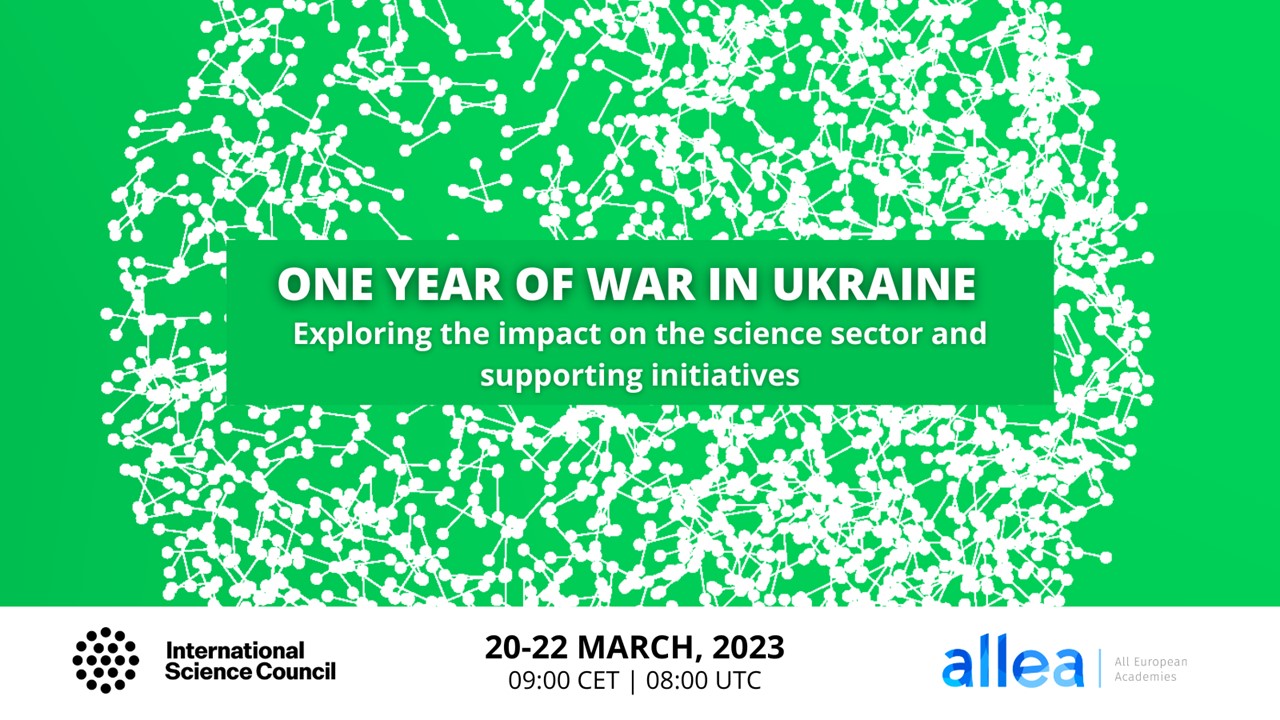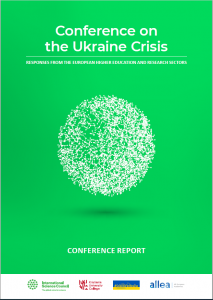2nd Conference on the Ukraine Crisis
One Year of War in Ukraine, Exploring the Impact on the Science Sector and Supporting Initiatives
How can the wider European scientific community continue to support Ukrainian scholarship and aid its post-conflict reconstruction as the war in Ukraine continues?
This is one of many questions that will be addressed in the upcoming 3-day conference on the Ukraine crisis, “One Year of War in Ukraine, Exploring the Impact on the Science Sector and Supporting Initiatives“, which takes place on 20-22 March online. Organised by ALLEA and the International Science Council (ISC), this event is a follow-up to the first conference that was held in June 2022, and which produced a report of seven key recommendations on how to support academics, researchers, students, and higher education and research-performing organisations affected by the conflict.
As the war in Ukraine continues, and gains intensity, there is a pressing need to reiterate support for Ukrainian scholars and academic/research institutions, as well as pave the way forward for the European scientific community’s efforts to safeguard Ukrainian science in the medium to long term. The Second Conference on the Ukrainian Crisis, therefore, aims to evaluate the existing support initiatives and build on the recommendations of the first conference, by taking into account the continually evolving circumstances of the conflict.
Conference Programme in Brief
The first day includes a series of plenary and panel discussions centred on how the conflict has impacted Ukraine’s higher education and science sectors, a review of the past year’s initiatives to support Ukrainian scholarship, and an evaluation of the steps forward given the war’s likely longevity. Dr. Serhiy Shkarlet, Ukraine’s Minister of Education and Science, will launch the event with a keynote address.
The second and third days highlight the professional development of research management & European integration (organised by Science Europe and the National Research Foundation of Ukraine), and the opportunities for scientific diasporas to continue international collaboration (organised by the Council of Young Scientists of Ukraine).




